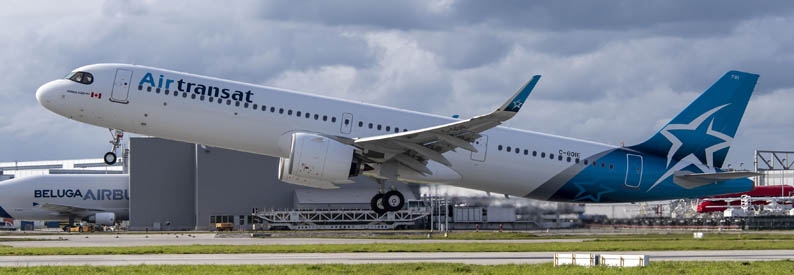Air Transat to Boost Fleet with A330s Amid A321neo Groundings

Air Transat is taking proactive measures to address its network and capacity challenges by leasing three additional Airbus A330-200 aircraft, as announced by CEO Annick Guérard during a recent earnings call. This strategic move aims to mitigate the operational impact caused by the grounding of several A321-200NX(LR) planes due to ongoing Pratt & Whitney engine issues.
Scheduled to join the fleet in summer 2024, two of these A330s are being leased from Avolon, with efforts underway to secure a third aircraft. These additions come at a critical time for Air Transat, which is currently facing the grounding of four aircraft, a figure anticipated to rise to six by the end of 2024 and potentially eight by 2025.
Despite these challenges, Guérard confirmed the expected delivery of the remaining four A321neo(LR) aircraft in the coming months, completing the airline’s fleet of 19 such models. Air Transat is also poised to welcome four A321-200NY(XLR) variants upon their certification, further enhancing its fleet capabilities.
The incorporation of the A330s, whose specific details remain under wraps, is part of a broader strategy by Air Transat to offset the adverse effects of the A321neo groundings. This approach includes extending existing aircraft leases, engaging in short-term leasing agreements, and optimizing fleet usage to maintain operational efficiency.
Air Transat’s current in-house fleet, as listed in the ch-aviation fleets module, comprises a diverse mix of 37 aircraft, supplemented by seven wet-leased planes. The composition includes A320, A321, and A330 families, alongside wet-leased B737-8s, a B737-800, and a DHC-8-300(MPA). The airline is set to streamline its medium-haul narrowbody fleet to A321s by summer 2024, indicating the phased retirement of its last A320-200, C-GEXI.
The groundings have necessitated a revision of Air Transat’s fiscal 2024 capacity growth forecast, reducing it from 19% to 13%. The financial strain from both the engine issues and elevated leasing costs has been significant, with aircraft leases contributing an additional CAD4.8 million (USD3.5 million) in expenses during the first quarter of 2024 alone.
Air Transat’s strategic response to these challenges underscores its commitment to maintaining service quality and network reach, despite the operational and financial hurdles posed by the A321neo groundings.
